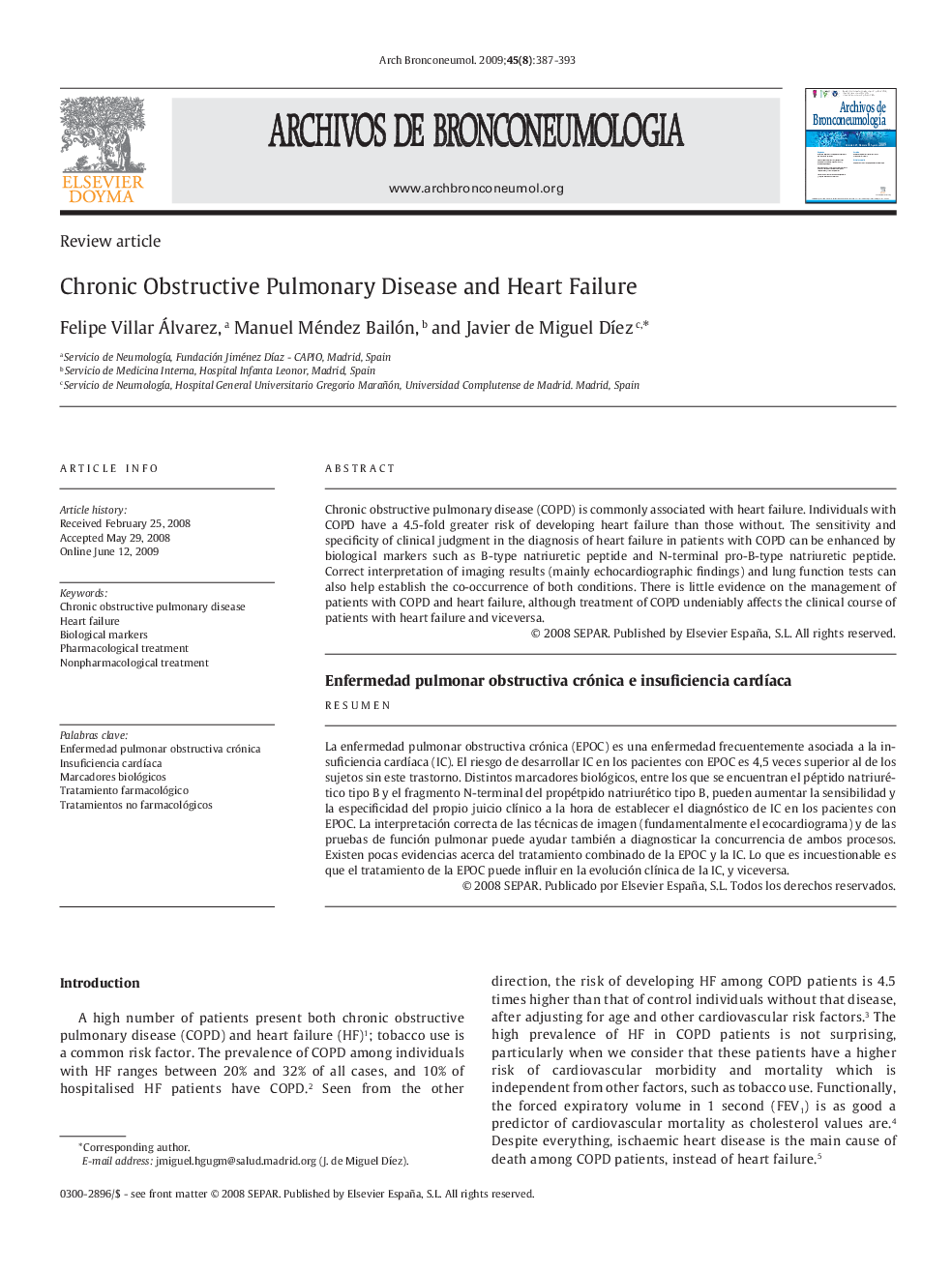| Article ID | Journal | Published Year | Pages | File Type |
|---|---|---|---|---|
| 4206668 | Archivos de Bronconeumología (English Edition) | 2009 | 7 Pages |
Chronic obstructive pulmonary disease (COPD) is commonly associated with heart failure. Individuals with COPD have a 4.5-fold greater risk of developing heart failure than those without. The sensitivity and specificity of clinical judgment in the diagnosis of heart failure in patients with COPD can be enhanced by biological markers such as B-type natriuretic peptide and N-terminal pro-B-type natriuretic peptide. Correct interpretation of imaging results (mainly echocardiographic findings) and lung function tests can also help establish the co-occurrence of both conditions. There is little evidence on the management of patients with COPD and heart failure, although treatment of COPD undeniably affects the clinical course of patients with heart failure and viceversa.
ResumenLa enfermedad pulmonar obstructiva crónica (EPOC) es una enfermedad frecuentemente asociada a la insuficiencia cardíaca (IC). El riesgo de desarrollar IC en los pacientes con EPOC es 4,5 veces superior al de los sujetos sin este trastorno. Distintos marcadores biológicos, entre los que se encuentran el péptido natriurético tipo B y el fragmento N-terminal del propétpido natriurético tipo B, pueden aumentar la sensibilidad y la especificidad del propio juicio clínico a la hora de establecer el diagnóstico de IC en los pacientes con EPOC. La interpretación correcta de las técnicas de imagen (fundamentalmente el ecocardiograma) y de las pruebas de función pulmonar puede ayudar también a diagnosticar la concurrencia de ambos procesos. Existen pocas evidencias acerca del tratamiento combinado de la EPOC y la IC. Lo que es incuestionable es que el tratamiento de la EPOC puede influir en la evolución clínica de la IC, y viceversa.
